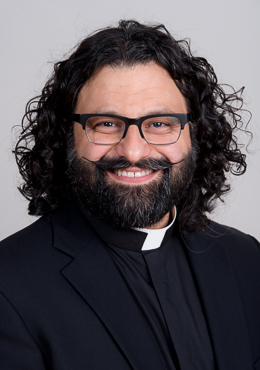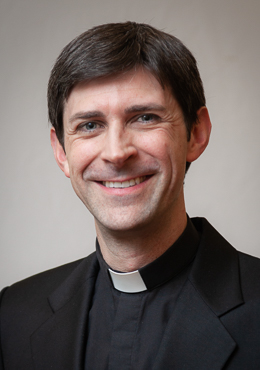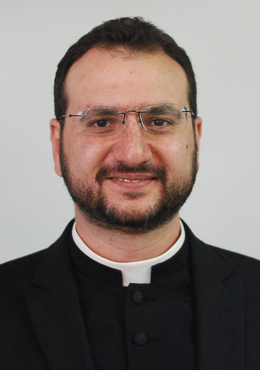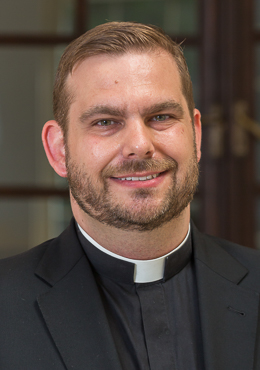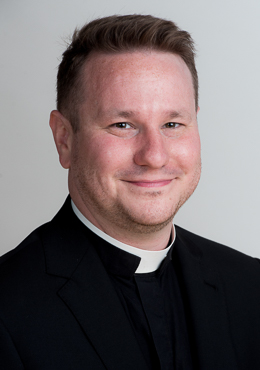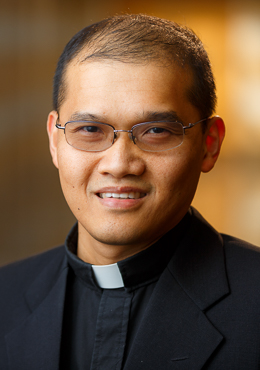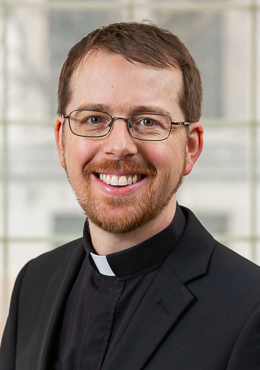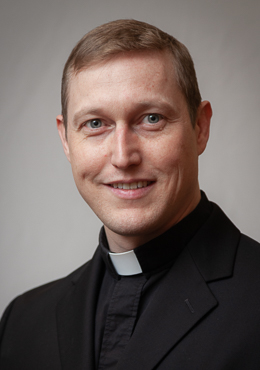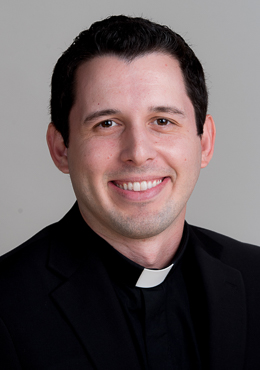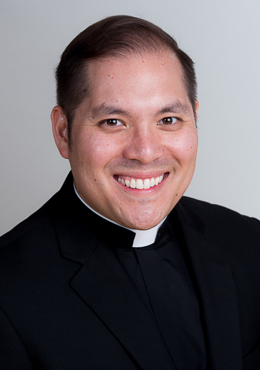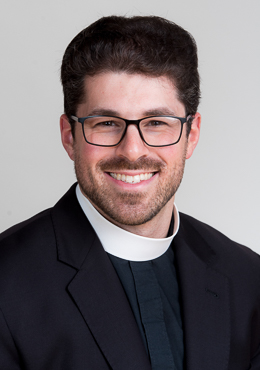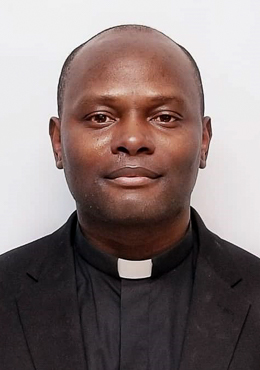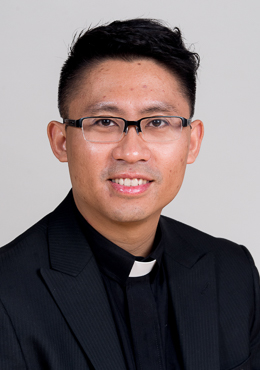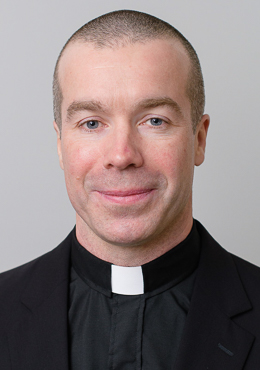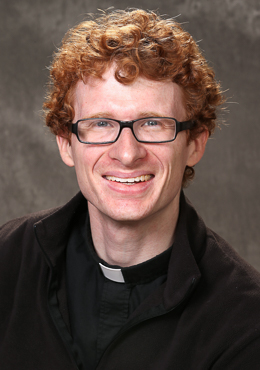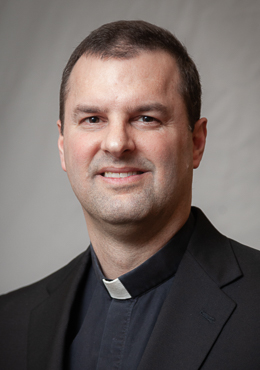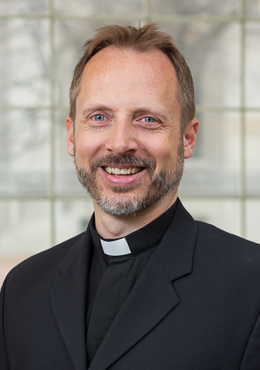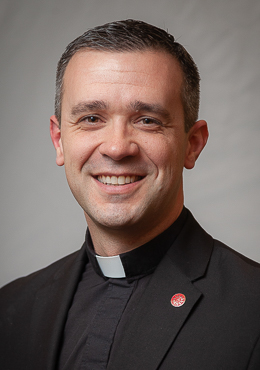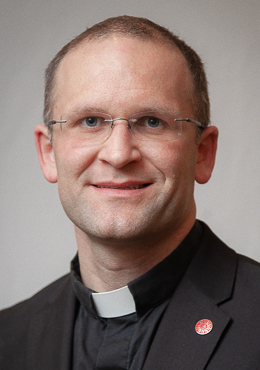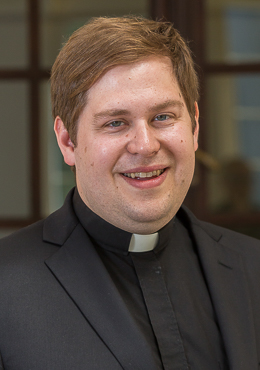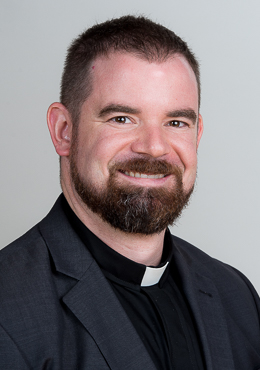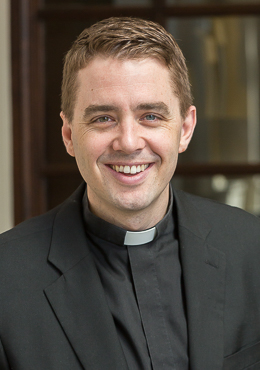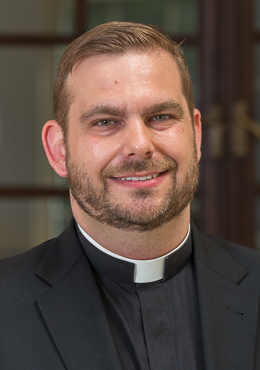
Province: Maryland
Birthday: April 12, 1983
Hometown: Winnetka, Illinois
Education:
Bachelor’s degree, English and German literature, Georgetown University
Master’s degree, German, Georgetown University
Master’s degree, philosophy, Loyola University Chicago
Bachelor of Sacred Theology, Regis College, University of Toronto
Master of Divinity, Regis
College, University of Toronto
Highlights of Jesuit Formation:
Taught and was Ignatian identity assistant at Washington
Jesuit Academy in Washington, D.C.
Taught philosophy and served as director of the RCIA program at Saint Joseph’s
University
Served as a deacon at the University of Toronto Newman Centre
Post-Ordination:
Will complete his Master of Theology and Licentiate in Sacred
Theology at Regis College at the University of Toronto
Biography:
Christopher E. Grodecki, SJ, grew up in Winnetka, Illinois. His
family was active members of Sacred Heart Church, where Chris was an altar
server and sang in the parish choir. Chris completed grade school at Sacred
Heart and graduated from New Trier High School in 2001. Chris then attended
Georgetown University in Washington, D.C., and in 2005 received his bachelor’s
degree in English and in German literature before receiving a master’s degree
in German the following year. He remained in D.C., working as a writer and
researcher at a non-profit public-interest law firm and participating in both
social and young adult ministries as a parishioner of St. Matthew’s Cathedral.
During that time, he maintained his friendships with the Jesuits at Georgetown
and began to discern his vocation to the Society of Jesus. Chris entered the
Society of Jesus in 2009, and, as a novice, served as co-teacher and Ignatian
Identity assistant at Washington Jesuit Academy. Chris was then missioned to
Loyola University Chicago, where he received a master’s degree in philosophy in
2014. While in Chicago, he was a SPRED (Special Religious Education) catechist
at Queen of Angels Parish; catechist of the English RCIA program at St.
Procopius Parish; and chaplain to the Loyola University Chicago women’s soccer
team. Thereafter, Chris taught philosophy and served as director of the RCIA
program at Saint Joseph’s University in Philadelphia for two years. In 2016,
Chris began his theology studies at Regis College in Toronto and received the
Master of Divinity degree in 2018. He was ordained a deacon in May 2018 at St.
Paul’s Basilica in Toronto and thereafter served as a deacon at St. Anthony’s
Parish in Oceanside, New York. Chris is currently completing the Licentiate in
Sacred Theology and Master of Theology programs at Regis College in Toronto and
serves as a deacon at the University of Toronto Newman Centre. (Maryland Province)

Chris with students while on his long experiment at Washington Jesuit Academy in 2010.
Who’s your favorite saint, and why?
One of my favorite saints is St. Peter Faber, SJ. Although he has
been overshadowed by his fellow first Jesuits, Sts. Ignatius and Francis Xavier, his
example of how to be a Jesuit is one that I find truly inspiring. Not only was
he someone whom Ignatius regarded as the best director of the Exercises, but it
was precisely through the depth of his spirituality that he was able to
contribute to building up the church in Germany despite the difficult
challenges presented by the religious and political divisions there. Entrusting
himself to the Trinity, Faber was able to discern God’s ever faithful, loving
but hidden presence no matter the circumstances. In this way, he is an example
of the virtues of faith, hope and charity, and, for me in particular, a real
witness to Christian hope.
What do you love about the Society of Jesus?
Central to the Jesuit vocation is that one offers all of oneself —
which includes the various gifts, talents and interests that God has given to
you — back to God for God's service and glory. In the end, what is said
occasionally about the Society really is true: If you've met one Jesuit, you've
met one Jesuit.

Chris (third from right) with Jesuit scholastics singing the national anthem at Loyola University Chicago’s Jesuit Jam basketball game in 2014.
What is your favorite book, movie, music, or TV show
you’ve encountered since entering the Society and why do you love it?
I find myself returning quite a bit
to Thomas Aquinas’s biblical commentaries, particularly his Commentary on the
Gospel of John, which I was first introduced to in a course on grace during the
first year of my theology studies. Thomas is occasionally criticized for being
“cold” or “too logical,” but I think that usually comes from knowing only the “Summa
Theologiae.” The Summa is supposed to be a condensed version of the essentials
in theology, so such critics are not exactly wrong, given Thomas’ purposes. So,
when in the Summa Thomas cites Scripture, he is, in a sense, referring back to
his commentaries, which his Dominican students would have learned before
encountering the Summa. Because Thomas presumes his audience will have learned
Scripture already from him, going back to the Commentaries gives one the
essential background and allows one to engage Thomas’ theology in a deeper and
richer manner. It’s there that one encounters Thomas’ deep engagement with
Scripture, interpretation and pastoral theology. Much of it is still useful,
and more importantly, meaningful for homiletics today.
What was one particularly meaningful experience you
had during your formation, and why was it meaningful to you?
During regency I taught a course on
the philosophy of human nature. Philosophy courses were always difficult,
because they were required, and not every student knew why they needed to take
philosophy in the first place. There was nothing explicitly theological about
the course. At the end of one semester I was surprised: I received messages
from some of the students in which they shared some of the particular areas of
Catholicism that they struggled with and how this particular course’s readings
and classroom time helped them work through some of those issues. It was only
after receiving these notes from students that I realized, due to my students'
insights, that in the background in several of the readings God was there,
however inconspicuously present.
